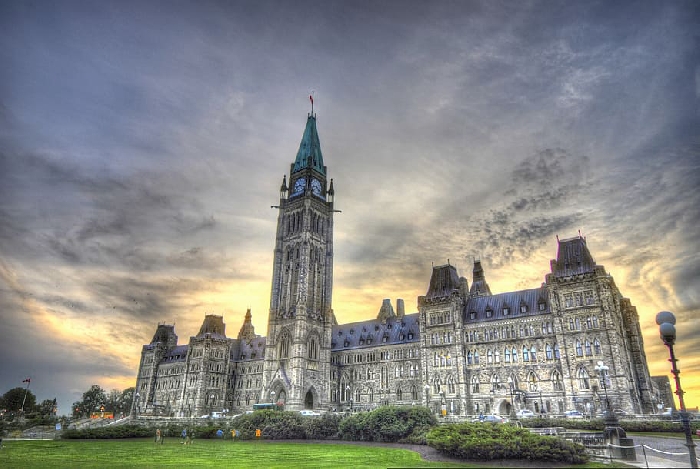Government announces some details of wage subsidy
April 2, 2020, 7:17 am


The federal government has announced some details of the 75 per cent wage subsidy for three months, retroactive to March 15.
The Canada Emergency Wage Subsidy would apply at a rate of 75 per cent of the first $58,700 normally earned by employees – representing a benefit of up to $847 per week.
The program would be in place for a 12-week period, from March 15 to June 6, 2020.
Eligible employers who suffer a drop in gross revenues of at least 30 per cent in March, April or May, when compared to the same month in 2019, would be able to access the subsidy.
Eligible employers would include employers of all sizes and across all sectors of the economy, with the exception of public sector entities.
For non-profit organizations and registered charities similarly affected by a loss of revenue, the government will continue to work with the sector to ensure the definition of revenue is appropriate to their circumstances.
The government is also considering additional support for non-profits and charities, particularly those involved in the front line response to COVID-19. Further details will be announced in the near term.
An eligible employer’s entitlement to this wage subsidy will be based entirely on the salary or wages actually paid to employees. All employers would be expected to at least make best efforts to top up salaries to 100% of the maximum wages covered.
Eligible employers would be able to access the Canada Emergency Wage Subsidy by applying through a Canada Revenue Agency online portal.
More details regarding how to apply for the program will follow.
Those organizations that do not qualify for the Canada Emergency Wage Subsidy may continue to qualify for the previously announced wage subsidy of 10 per cent of remuneration paid from March 18 to June 20, up to a maximum subsidy of $1,375 per employee and $25,000 per employer.
“Businesses provide the jobs, the goods and the services that Canadians depend on to keep their communities going, in good times and bad," said Bill Morneau, minister of finance. "With the Canada Emergency Wage Subsidy, we are helping businesses keep their staff on payroll so that businesses will be better positioned to rebound when the current challenges have passed. We will continue to do whatever it takes to ensure that workers and businesses are supported through the outbreak, and that our economy remains resilient during these difficult times.”
“Small businesses are at the heart of our communities and are the backbone of our economy, employing millions of hard-working Canadians," said Mary Ng, Minister of Small Business, Export Promotion and International Trade. "There is no question that they are feeling the brunt of this challenging time. This wage subsidy will help keep more Canadians employed and will provide direct support to businesses so they can keep up with their bills. We will continue to listen to the very real needs of Canadian business owners and workers, and we will be there to support them every step of the way.”
“We have been in constant communication with Canadian businesses, and we know that all sectors of the economy are being affected by COVID-19," said Navdeep Bains, Minister of Innovation, Science and Industry. "With the Canada Emergency Wage Subsidy, employers—no matter their size—will be supported to weather this storm, to be ready to recover when it passes, and to help Canadians keep their jobs.”
The Canadian Federation of Independent Business said it is pleased that government has confirmed the wage subsidy will be available to firms of all sizes and structures, including sole proprietorships and partnerships, and is pleased that the government will not require firms to cover the remaining 25 per cent of wages if they are financially unable to do so.
"However, there are several design features and unanswered questions that may prevent the program from meeting its intended goal of reducing layoffs," said the CFIB. "Government has confirmed that businesses will be required to prove a 30 per cent drop in gross revenue on a month-by-month basis by comparing their revenues to the same time last year. For some firms with very tight profit margins, even a small drop in sales can require significant numbers of layoffs in order to lower costs. New businesses, seasonal businesses and those who experienced a major event last year at this time would also find it challenging or impossible to demonstrate the 30 per cent decline figure."
"The goal of this unprecedented and positive move is to give employers the means and confidence to retain their staff during the COVID-19 pandemic. If employers are not able to know with certainty whether they will qualify for the subsidy, many will be forced to lay off workers. Wages are so significant an expense that getting it wrong or having your documentation of the revenue drop rejected on audit would put small businesses in risk of bankruptcy. It is also concerning that the funds will not be available to businesses for another six weeks, as many are facing cash flow emergencies now."
CFIB said it was happyto learn that the earlier 10 per cent wage subsidy for smaller firms remains available to those who may not qualify for the new 75 per cent program.
"CFIB continues to support the Canada Emergency Wage Subsidy and will work with government on further changes to ensure it is widely available to all small and medium-sized businesses," the CFIB said. "As the vast majority have been negatively affected by the economic crisis created by COVID-19, CFIB urges government to eliminate the requirement for proof of a 30 per cent drop in revenue from all firms with fewer than 500 workers and those ordered to fully or partially close by provinces. Small firms are grateful for the support, but we need to get this right. Hundreds of thousands of jobs are on the line. The future of many small firms and a quick recovery are on the line too."
Federal government measures announced in response to Covid -19 will:
Allow businesses, including self-employed individuals, to defer all Goods and Services Tax/Harmonized Sales Tax (GST/HST) payments until June, as well as customs duties owed for imports. This measure is the equivalent of providing up to $30 billion in interest-free loans to Canadian businesses. It will help businesses so they can continue to pay their employees and their bills, and help ease cash-flow challenges across the country.
Launch the new Canada Emergency Business Account. This program will provide up to $25 billion to eligible financial institutions so they can provide interest-free loans to small businesses, including not-for-profits. These loans – guaranteed and funded by the Government of Canada – will ensure that small businesses have access to the capital they need, at a zero-per-cent interest rate, so they can pay for rent and other important costs over the next number of months.
Launch the new Small and Medium-sized Enterprise Loan and Guarantee program that will enable up to $40 billion in lending, supported through Export Development Canada and Business Development Bank, for guaranteed loans when small businesses go to their financial institutions to help weather the impacts of COVID-19. This is intended for small and medium-sized companies that require greater help to meet their operational cash flow requirements.
Extend the maximum duration of the Work-Sharing program, from 38 weeks to 76 weeks, for workers who agree to reduce their normal working hours because of developments beyond the control of their employers.
Increase credit available for farmers and the agri-food sector through Farm Credit Canada.
Defer the payment of income taxes. The government is allowing all taxpayers to defer, until August 31, 2020, the payment of income tax amounts that become owing on or after March 18 and before September 2020. This relief would apply to new balances due, as well as instalments, under Part I of the Income Tax Act. No interest or penalties will accumulate on these amounts during this period.



































